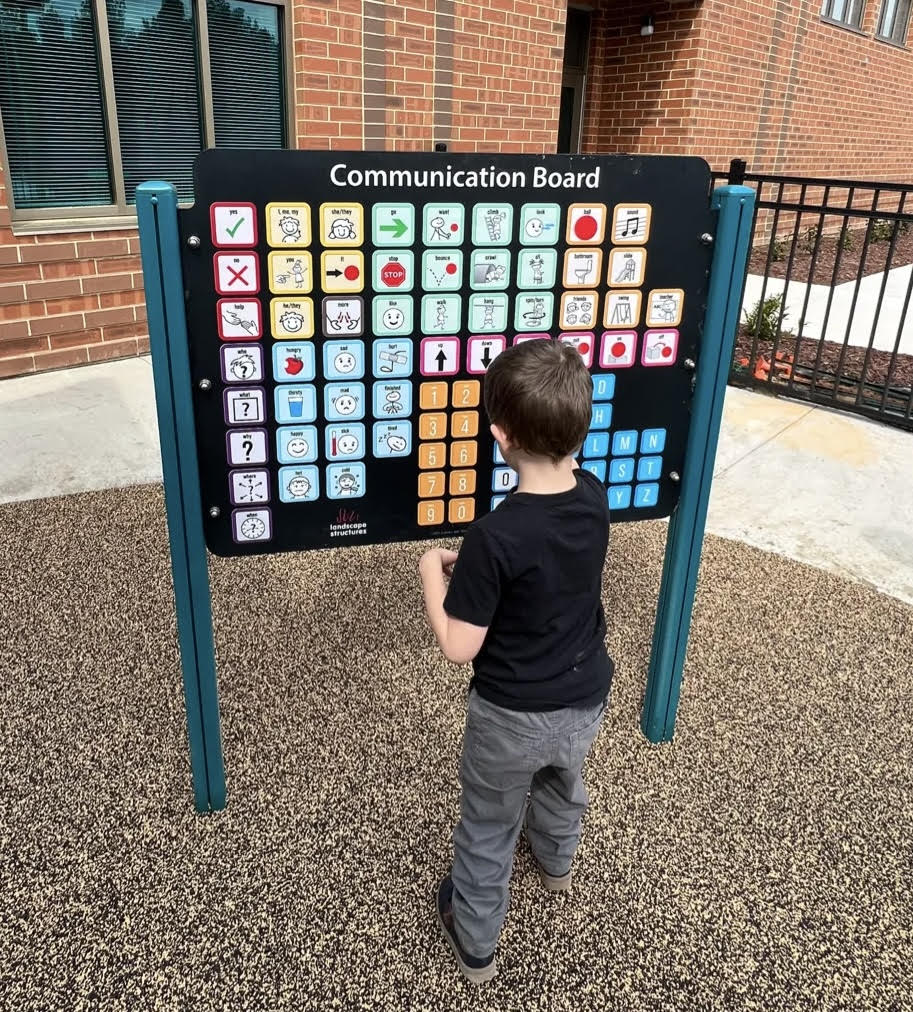
When my daughter Eliza was born, she relied on me for everything. Motherhood was a very hands-on task. Constant holding and rocking and cuddling and feeding, and it was all about the bonding. I was teaching my child I would always be there for her, and it was beautiful and absolutely necessary. As she grew, the need to do things for her declined, and if I interfered when she wasn’t ready for me, boy did she make it known that she did not want my help. The more she grew, the more tasks she could do on her own, and the more independent she became, the less I intervened. Eventually I stopped helping her all together, unless she asked for it. It’s growth, it’s natural, and what you want and expect from your child in life.
When Asher was born, we started out the same way. We were practically one entity for months, attached to each other, and he relied on me for everything. The difference between the two came when Asher didn’t meet his milestones and the therapies piled up. The trajectory of physical development was not the same for him as it was for my daughter and so as he grew, the level of hands-on activities did not decline. In fact, they became more intense, and they transformed.
They went from loving care to “this is how your body should move, so I’m going to move it for you.” Much of what I did is called hand-over-hand, where I guided his hand with my hand over top of his. I did it. The therapists did it. His pre-k teachers did it. The further behind my son got, the more we all facilitated tasks for him. From guiding him to grab food, push buttons, turn pages or manipulate toys “appropriately”. Someone was always there, guiding his hands.
Let’s make it very clear, I had Asher’s best interest at heart, we all did, and I thought I was helping him, but one day it finally clicked. I realized I wasn’t helping him. I was frustrating him. For years.
I realized that as time went on and my son grew, he too should have had a say in how I, or anyone else, handled his body. If he didn’t want us to help him do something, we shouldn’t have done it. But here lies the stark contrast in the way we treat our typical kids compared to how we treat our disabled kids. We ignore their frustration. We ignore their body language. We ignore their head shakes and their whines because we are taught, through unending pressure, that this is what we need to do to teach our child to function the way we desperately want them to. We push our agenda relentlessly, even if it is clearly difficult, or impossible for them to do. We ignore their attempts at resisting so much, they invariably become invisible to us.
That’s what happened to me. Performing tasks became the priority over listening to my child. When I compare how I handled each child, I realize, I would have never continued to force Eliza to perform a task or even assist her in a task she so clearly didn’t want to do. Ever. Yet when it was a skill my son was developmentally behind on, when it was something he should have been able to do months or even years ago, it was okay. It was okay to override his basic human right to autonomy, to say no, to ignore the consent he did not give, for me to manipulate his hand to do a task he didn’t want to do anyway. Because why? Because we said so. Society said it was more important for him to learn to do it for our convenience than for him to say no. I taught him that, and doctors and therapists taught ME that.
But really what he needed was accommodation and patience and an understanding. He needed us to understand that he was disabled and if he could do these tasks, he would. If any of our children could do these tasks we want them to do, they would.
What my son really needed was a childhood, not a never-ending therapy session.
Sometimes I wonder how such a simple idea got away from us. From doctors, therapists, parents. When we do hand-over-hand we take away our child’s basic right to say no and we do it repeatedly. As they grow older, our disabled children lose their independence while our typical kids are allowed to demand it. We need to ask ourselves; how can we re-prioritize milestones for our children? How can we make sure they are being respected first, accommodated second, THEN lastly, how can we teach them in a way that doesn’t suppress their free will? The same free will we nurture in our typical kids.
Why doesn’t no mean no for our disabled kiddos? And when is it okay to just be disabled?
Leave a Reply